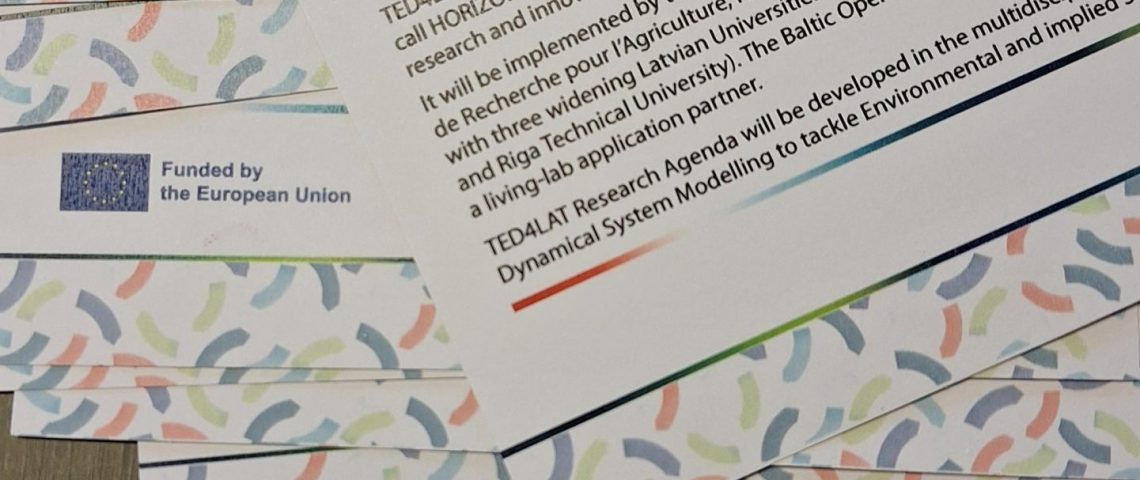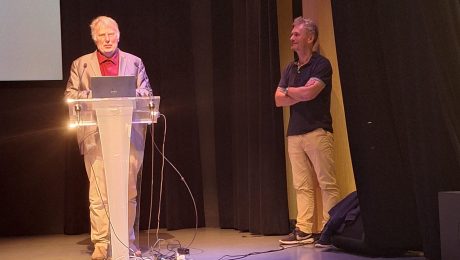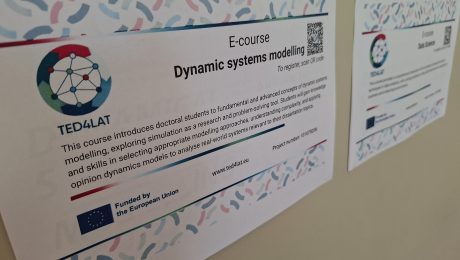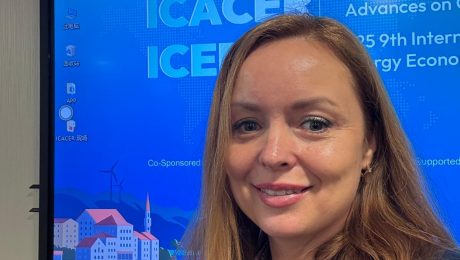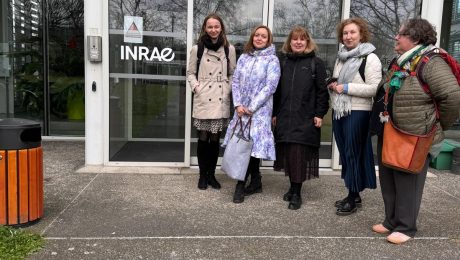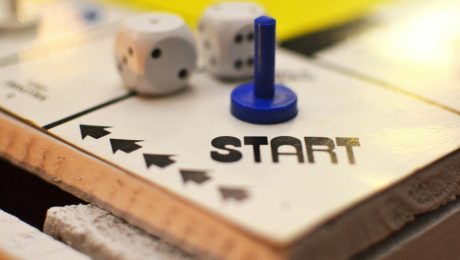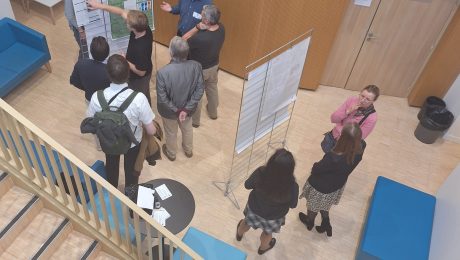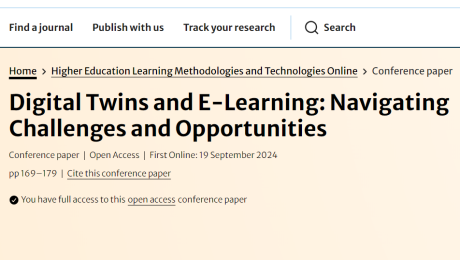- If you could solve one problem in Latvian daily life using TED4LAT’s research, what would it be and why?
I would like to work with a digital-age university model. The previous important model change was the establishment of technical universities in the 19th century as a protest against classical universities.
2. What is the most surprising or mind-blowing fact TED4LAT has revealed about our environment that people rarely talk about?
The well-structured opportunities to create usable models on social situations, challenges and solutions.
3. Imagine TED4LAT had a superpower—what would it be, and how would it change Latvia for future generations?
TED4LAT could develop patterns and approaches to help Latvian society maximise its benefits from digital age opportunities.
4. If TED4LAT could collaborate with any person or group outside of science (like artists, athletes, or entrepreneurs), who would you choose and what project would you create together?
I would like to work on a better understanding of possible advanced digital age business models in a real, diverse environment.
5. Are you ready to develop new projects like Ted4Lat?
Yes, I am always ready to discuss new ideas!
From July 14 to 18, 2025, the Ted4Lat Doctoral School and Workshop “Open Data for Addressing Interconnected Environmental and Social Challenges” will take place at Vidzeme University of Applied Sciences (ViA), bringing together students from Latvia, France, Italy, Ukraine, Hungary, Romania, Albania, and India.
The doctoral summer school will gather students and professors to work together with data. Students will present progress reports on their doctoral research and collaborate in teams to develop new open data solutions, while professors will provide valuable feedback and serve as mentors.
Students will participate in lectures, workshops, and a hackathon to not only learn about using data as a driving force of digital transformation but also to foster innovation across various processes.
“The doctoral summer school is designed to give PhD students and candidates a boost in developing their dissertations while also enhancing skills in defining innovative products — a crucial aspect of modern science, which must become increasingly connected to society. To achieve these goals, PhD candidates will have the opportunity to present progress reports and participate in a data hackathon. Additionally, the program includes several guest speaker presentations, focusing both on data use in current research projects and on specific data-related topics,” explains lead researcher and doctoral school organizer Ph.D. Oskars Java.
The Doctoral School is implemented by the project partners: Vidzeme University of Applied Sciences (Latvia), Institut National de Recherche pour l’Agriculture, l’Alimentation et l’Environnement (France), Politecnico di Torino (Italy), Riga Technical University (Latvia) and The Baltic Open Solutions Center (Latvia).
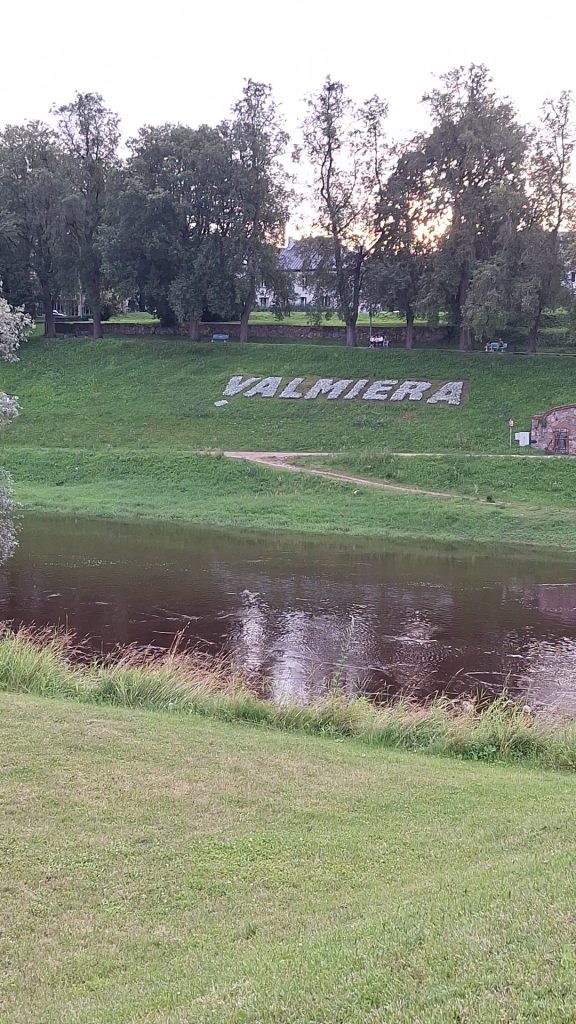
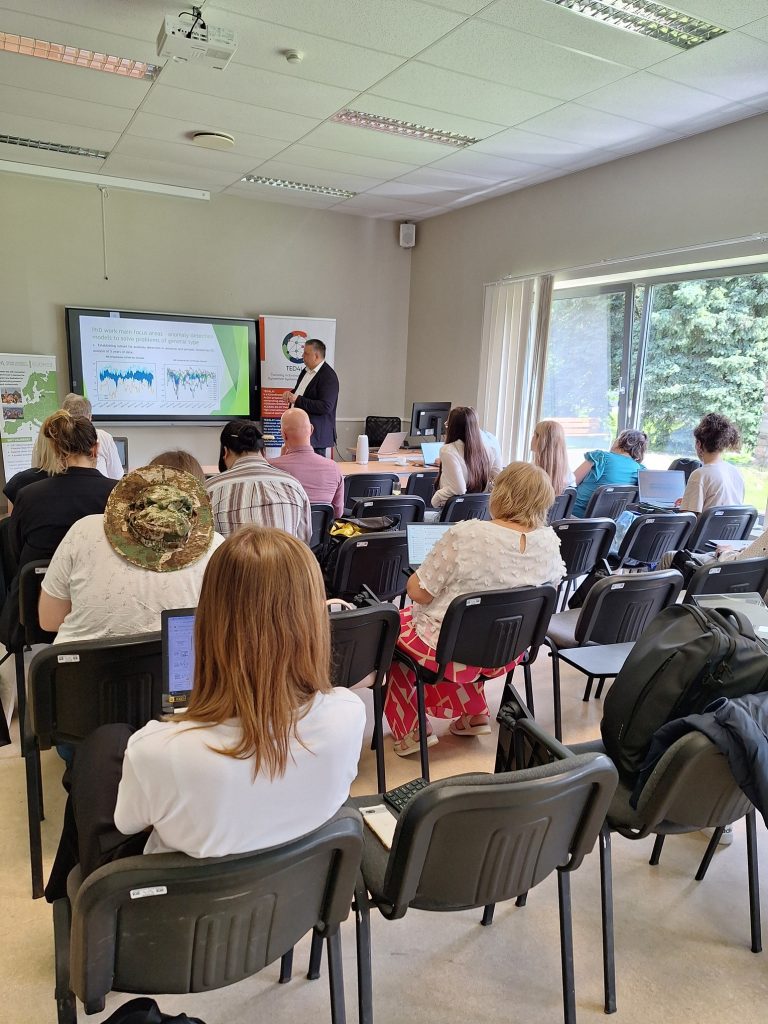
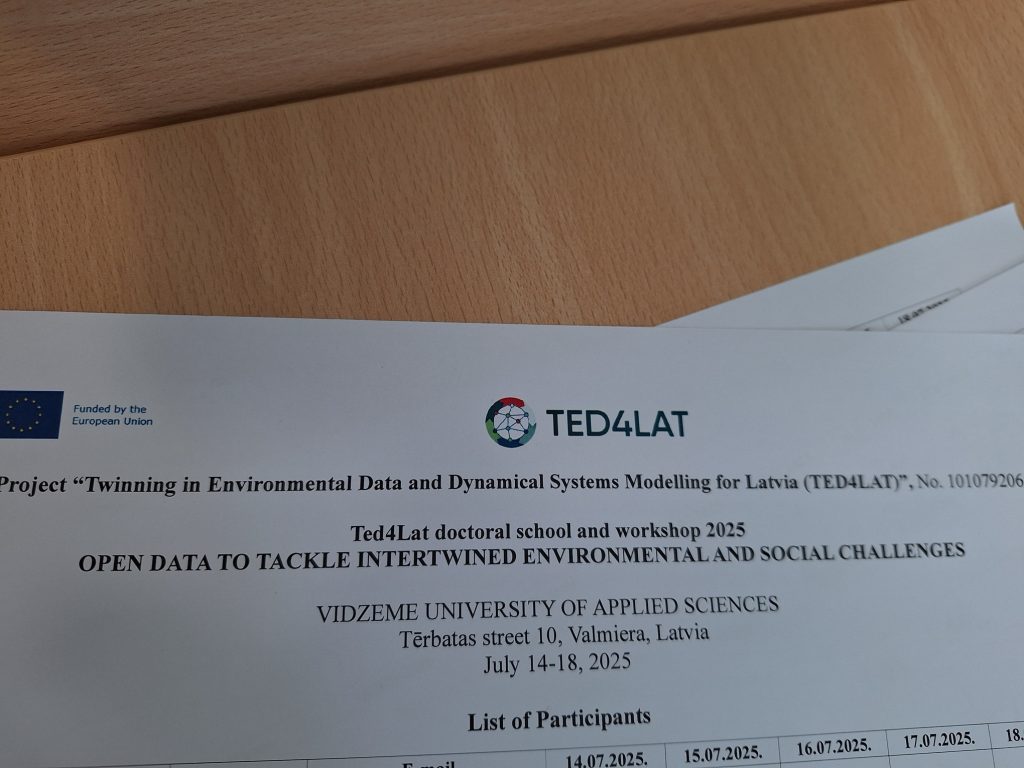
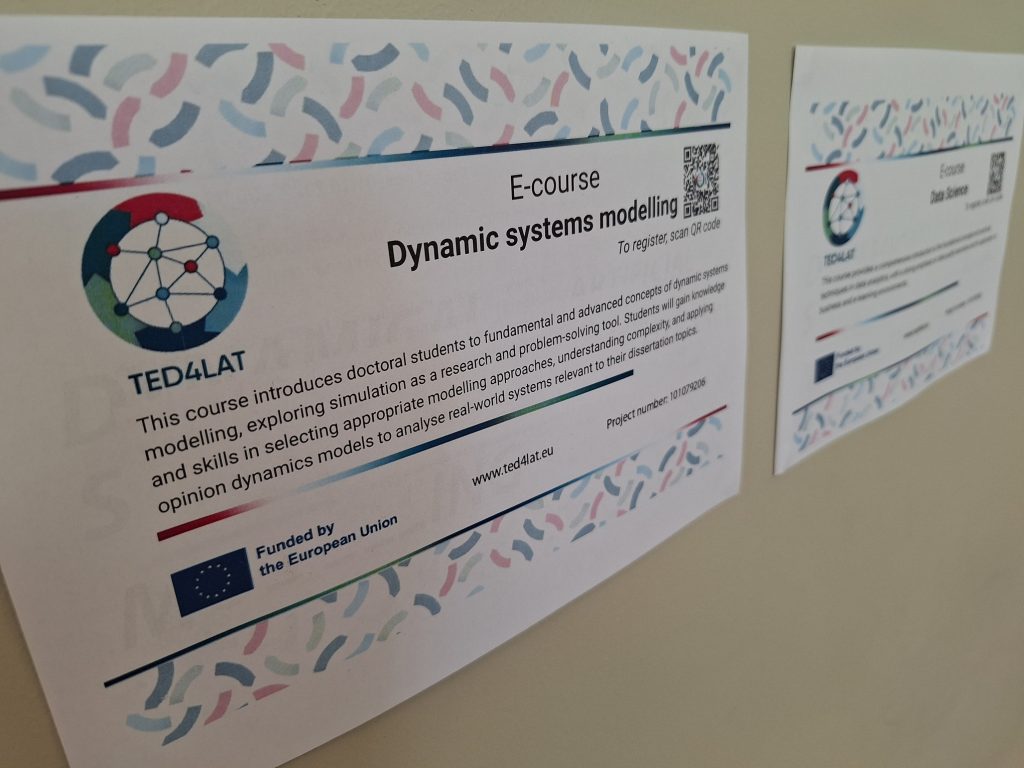
We are thrilled to announce that RTU (Latvia) PhD student Guna Jākobsone-Šnepste, who actively participates in T,ed4Lat Research Agenda, recently presented her research at the 9th International Conference on Energy Economics and Energy Policy (ICEEEP 2025), held from April 7 to 9, 202in Nice, France.
This conference united experts, researchers, energy economists, and policy professionals to discuss the latest developments and share insights. Guna’s participation in the “Changing Attitudes Toward Nuclear Energy in European Union Countries from 2009 to 2024” speech underscores her dedication and hard work in her research. It also represents a valuable opportunity to engage with peers and leaders in the energy sector.
We commend Guna for her achievements and look forward to seeing how her contributions will advance energy policy. Stay tuned for updates on her research and future endeavors!
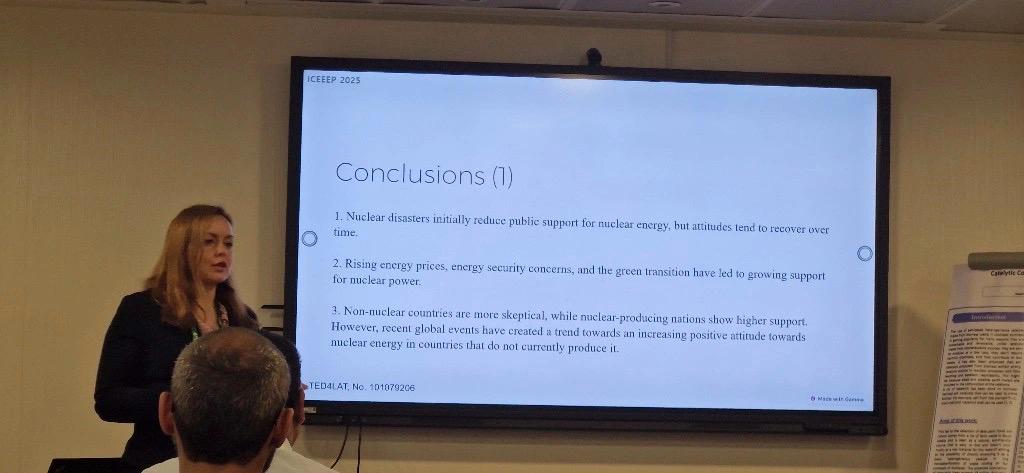
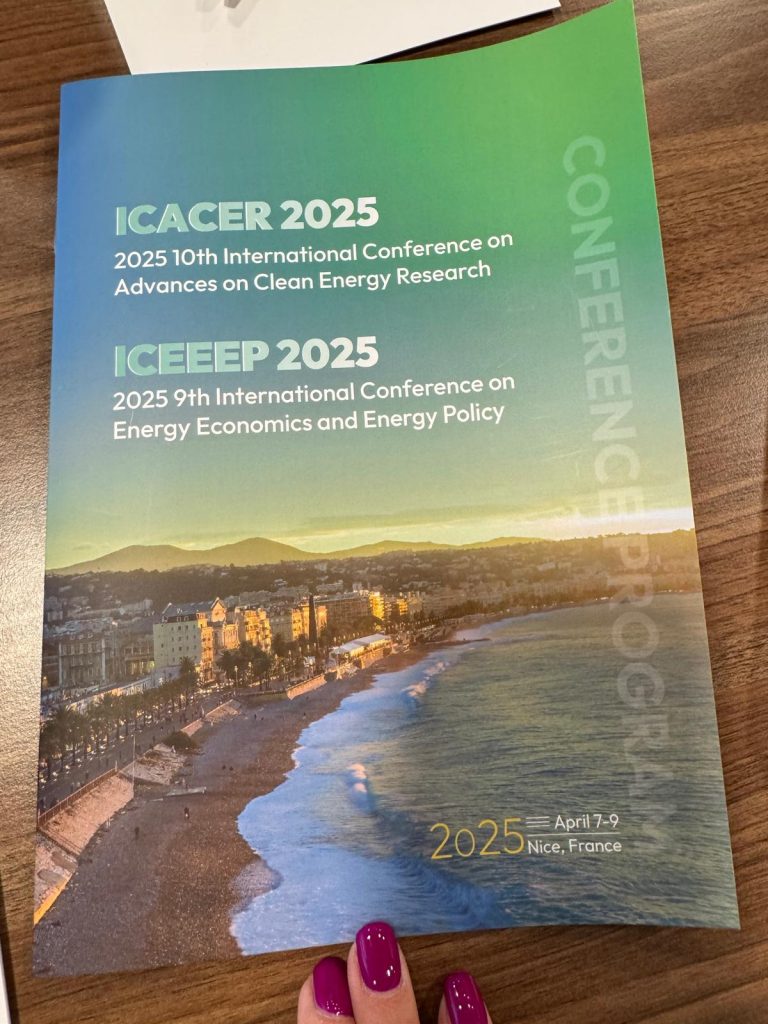
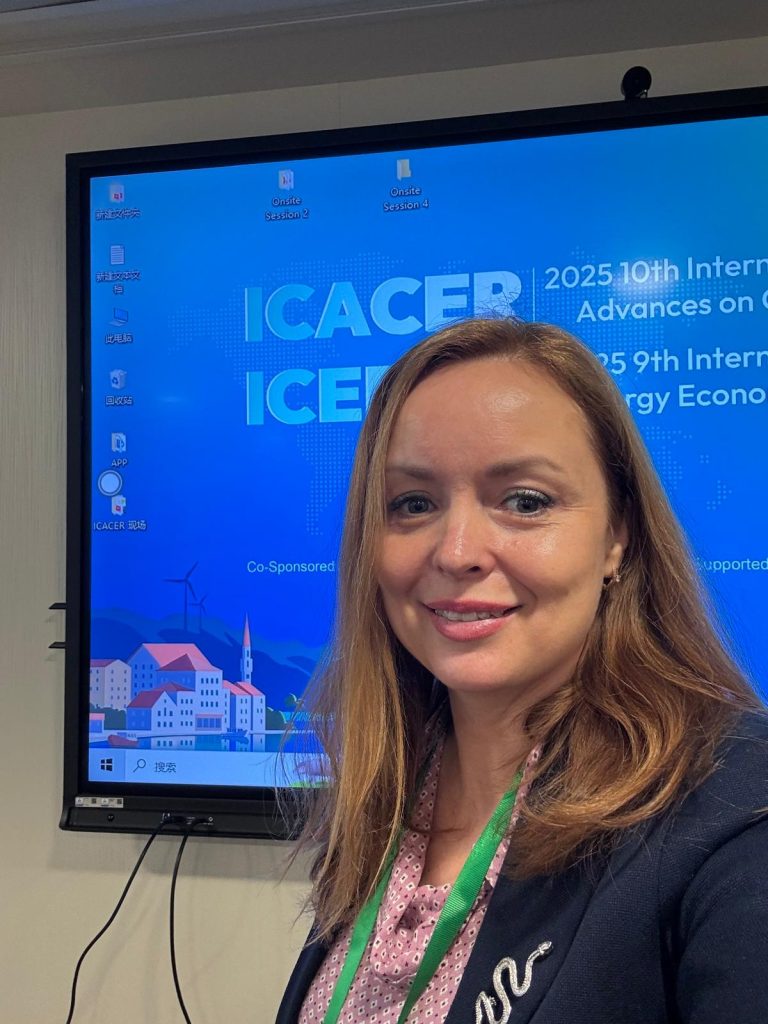
From March 17-19, 2025, young researchers from Latvia participated in a short-term visit to INRAE, France, as part of the TED4LAT project. The visit included Lasma Ulmane-Ozolina (RTU LA), Ieva Vītoliņa (RTU), Guna Jākobsone-Šnepste (RTU), Una Krutova (RTU) and Mairita Zaķe (ViA), who engaged in discussions and collaborative activities with INRAE experts.
Key Activities and Discussions:
- March 17:
- Introduction to the short-term visit by Ieva Vītoliņa (RTU) and Guillaume Deffuant (INRAE).
- Discussions on new and upgraded e-courses, including dynamic modeling, involving PhD students and young researchers.
- Exploration of INRAE’s experience in project management through presentations.
- March 18:
- Development and upgrading of the dynamic modeling course led by Guillaume Deffuant (INRAE).
- Discussion of learning objectives for e-courses with Jean-Baptiste Pichancourt (INRAE).
- March 19:
- Review of upcoming European project calls and funding opportunities.
- Planning for a COST project, exploring collaboration topics.
- Preparation of individual COST activity plans with INRAE representatives.
This visit fostered knowledge exchange, enhanced course development, and strengthened international research collaborations within the TED4LAT framework.
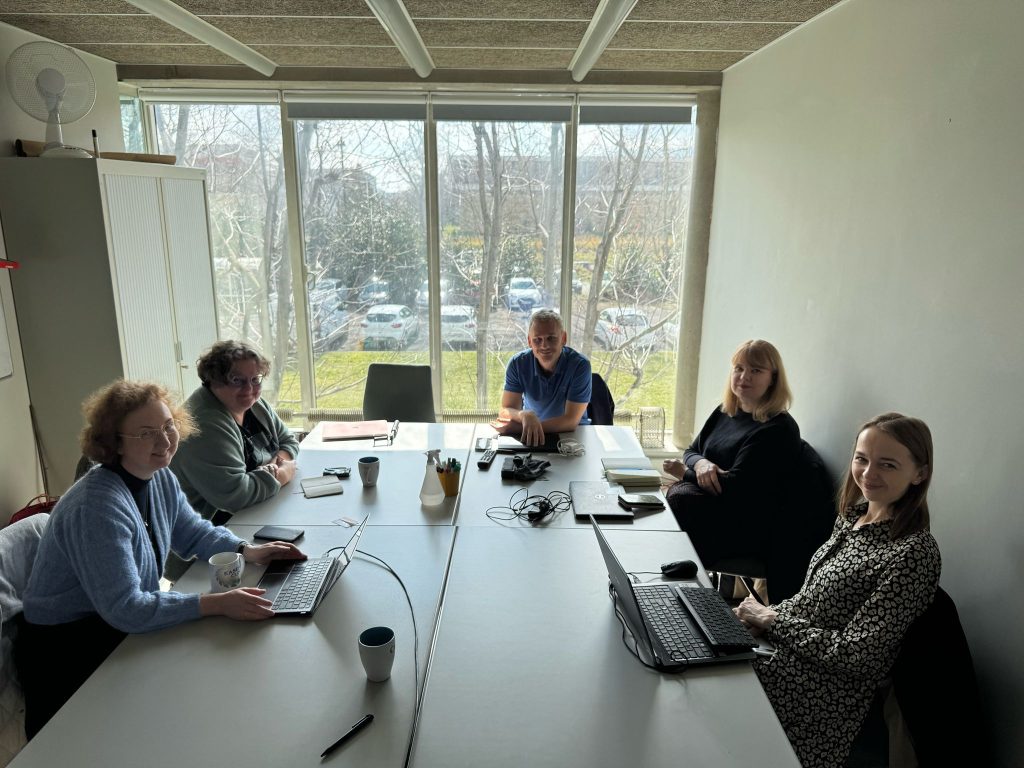
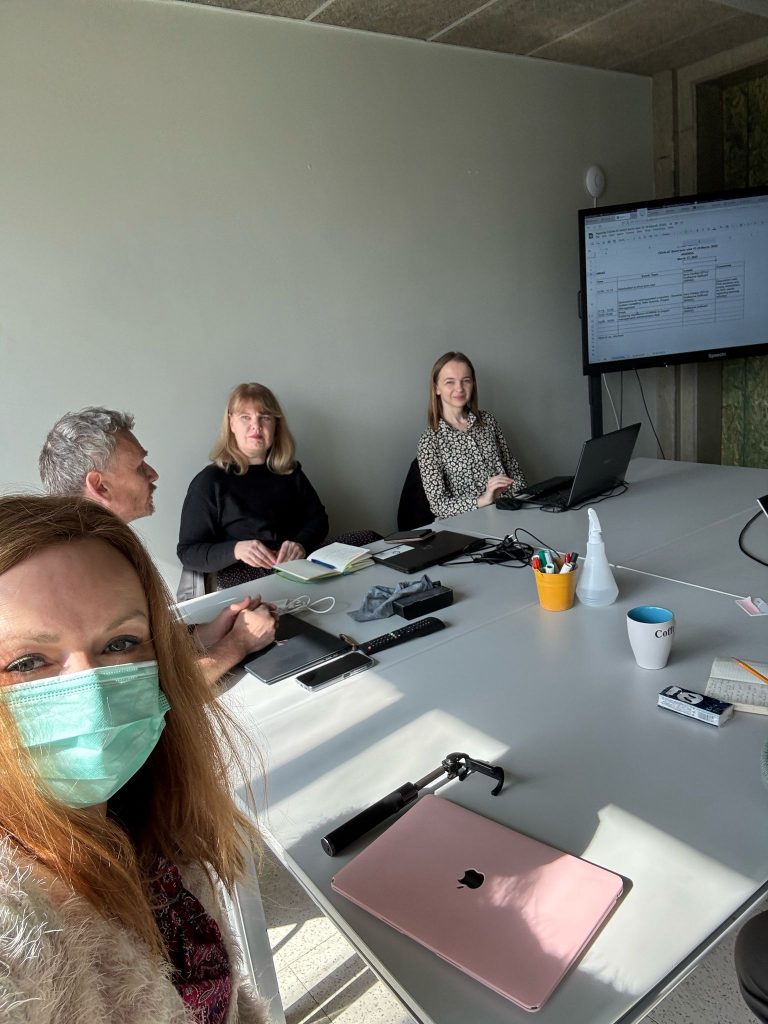
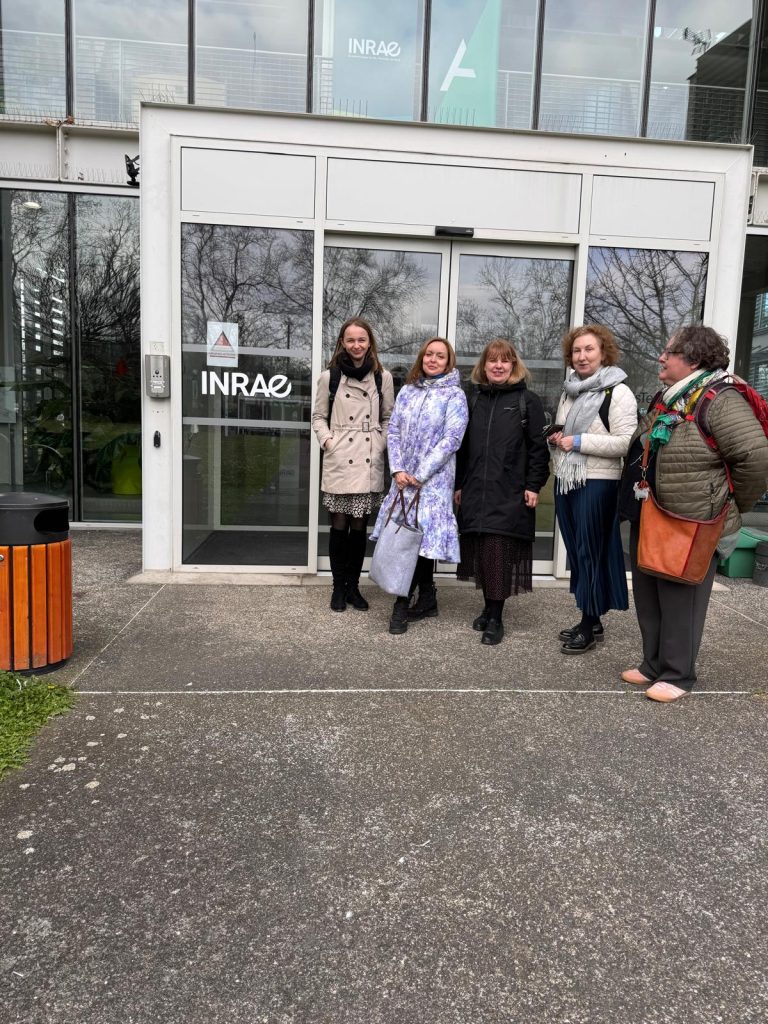
Ted4Lat project team is proud to inform you that three new scientists have been accepted to the Research agenda – Svetlana Osinceva (LiepU), Roberts Volkovičs (ViA) and Madara Freimane (LiepU). Congratulations! New scientists already started to work with their advisors – Anna Carbone from POLITO and Guillaume Deffuant from INRAE.
- If you could describe the ted4lat project in a metaphor, what would it be and why?
A long-distance team race. Indeed, the project is a demanding effort over a duration of several years and its goal can only be achieved if everyone in the team keeps being committed.
- How has your involvement in the ted4lat project changed your perspective on your field of study?
It has opened me to the practices of research in Latvian universities. Trying to be more familiar with the economic and cultural context of Latvia is in my view a part of the collaboration.
- What unexpected discoveries or insights have emerged from the ted4lat project so far?
The TED4LAT project led to close collaborations between a French or an Italian experienced scientific advisor and a Latvian scientist in their early carrier. The main insight is that these regular collaborations were mutually beneficial and led to co-authored scientific productions.
- If you could collaborate with any historical figure on the ted4lat project, who would it be and what would they contribute?
Charles-Maurice Talleyrand, the famous foreign minister of Napoleon the First. Talleyrand is known as one of the best diplomats of his time. In other words, he was able to understand people with very different interests and cultural backgrounds and find the common ground on which they could build together.
- How do you balance the scientific rigour of the ted4lat project with the need for creativity and innovation?
I think that this balance varies in the different specific scientific collaborations. This balance is also a constant subject of discussion when framing scientific work. We always need to clearly identify the novelty of research with respect to existing literature and rigorously demonstrate its advance.
- What personal experiences or passions inspired you to join the ted4lat project?
Interest in exchanging with people from different horizons and finding paths for building together.
The TED4LAT PhD School (21.10. – 25.10.2024.) was thrilled to showcase the innovative work of our participating students through a series of insightful presentations. These young researchers brought fresh perspectives, presenting their latest studies on sustainable resource management, digital data integration, and environmental resilience.
Highlights from Student Presentations
- Cutting-Edge Research: Students shared their findings on topics ranging from remote sensing and climate data analytics to predictive modeling for ecosystem management. Their work demonstrates the potential of digital solutions to address critical sustainability challenges.
- Innovative Approaches: Each presentation highlighted creative methods for collecting, analyzing, and applying environmental data in real-world contexts, showcasing the ingenuity and forward-thinking of our next generation of researchers.
- Interactive Feedback: The sessions encouraged lively discussions, with experts and peers providing feedback and exploring collaboration opportunities. This exchange of ideas enriched the presentations and created connections across different fields of study.
Celebrating Future Leaders in Sustainable Solutions
The TED4LAT PhD School is proud to support and inspire these promising researchers as they push the boundaries of what’s possible in sustainable resource management. Their dedication and innovation are key to building a resilient and sustainable future.
Stay tuned for more updates and outcomes from our talented students!
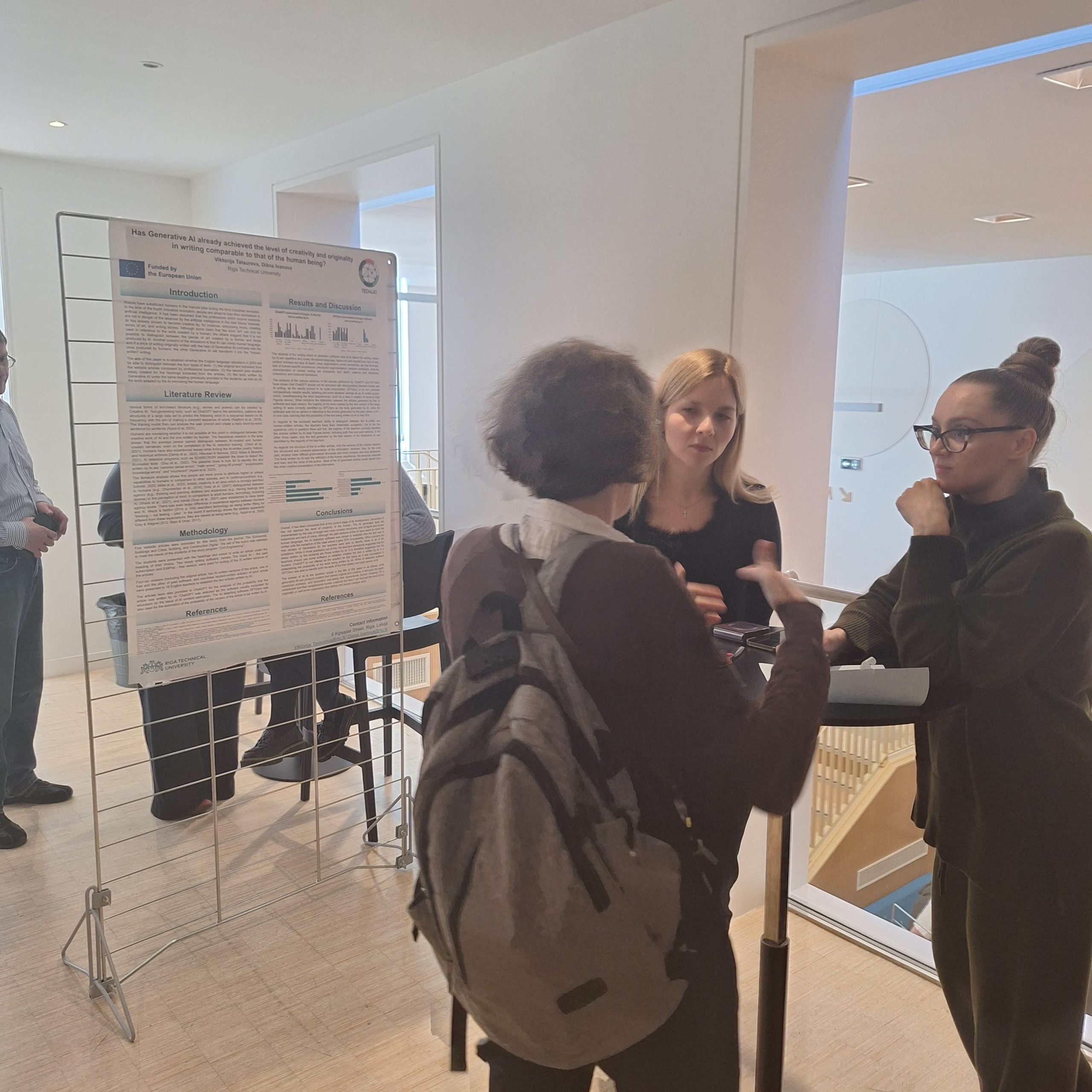
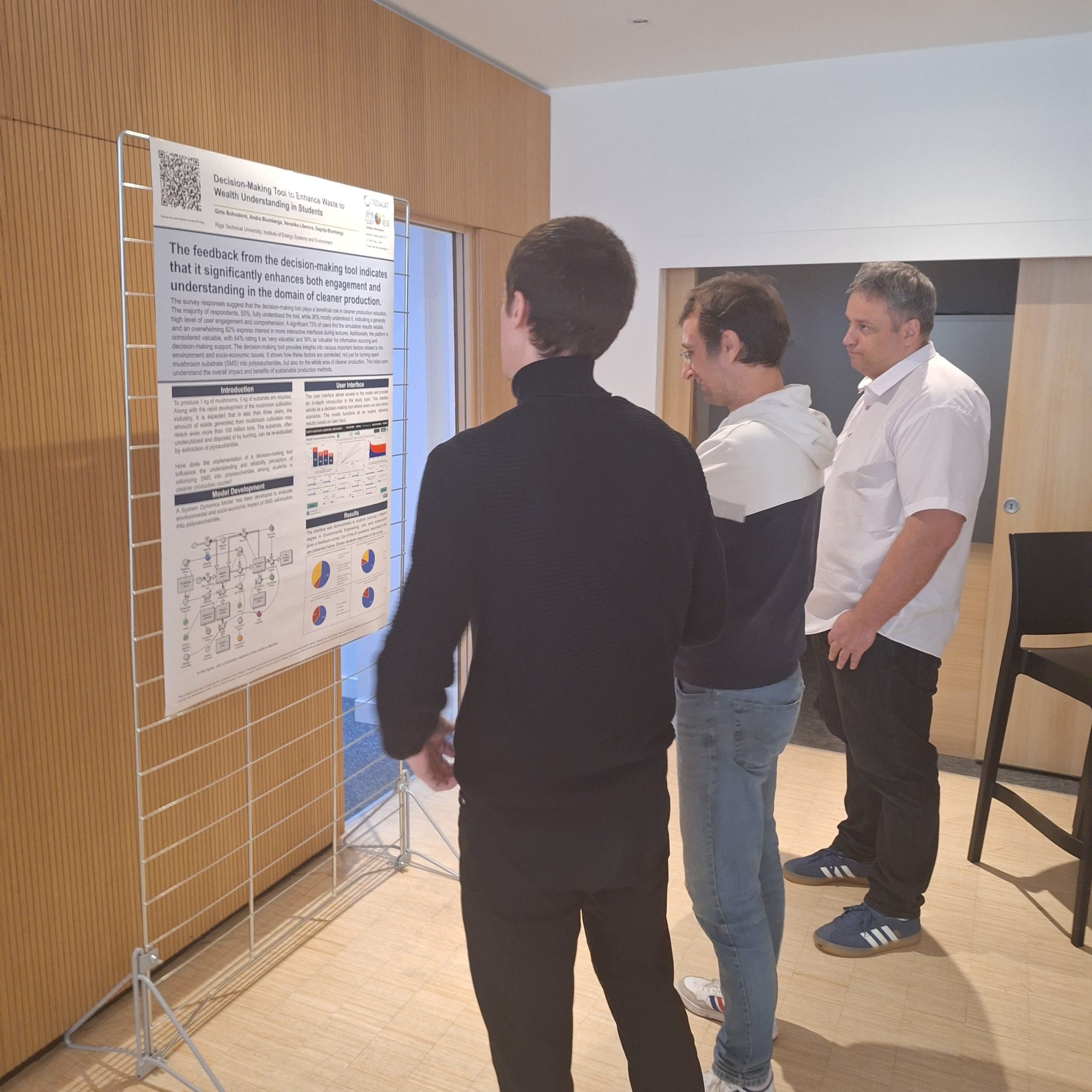
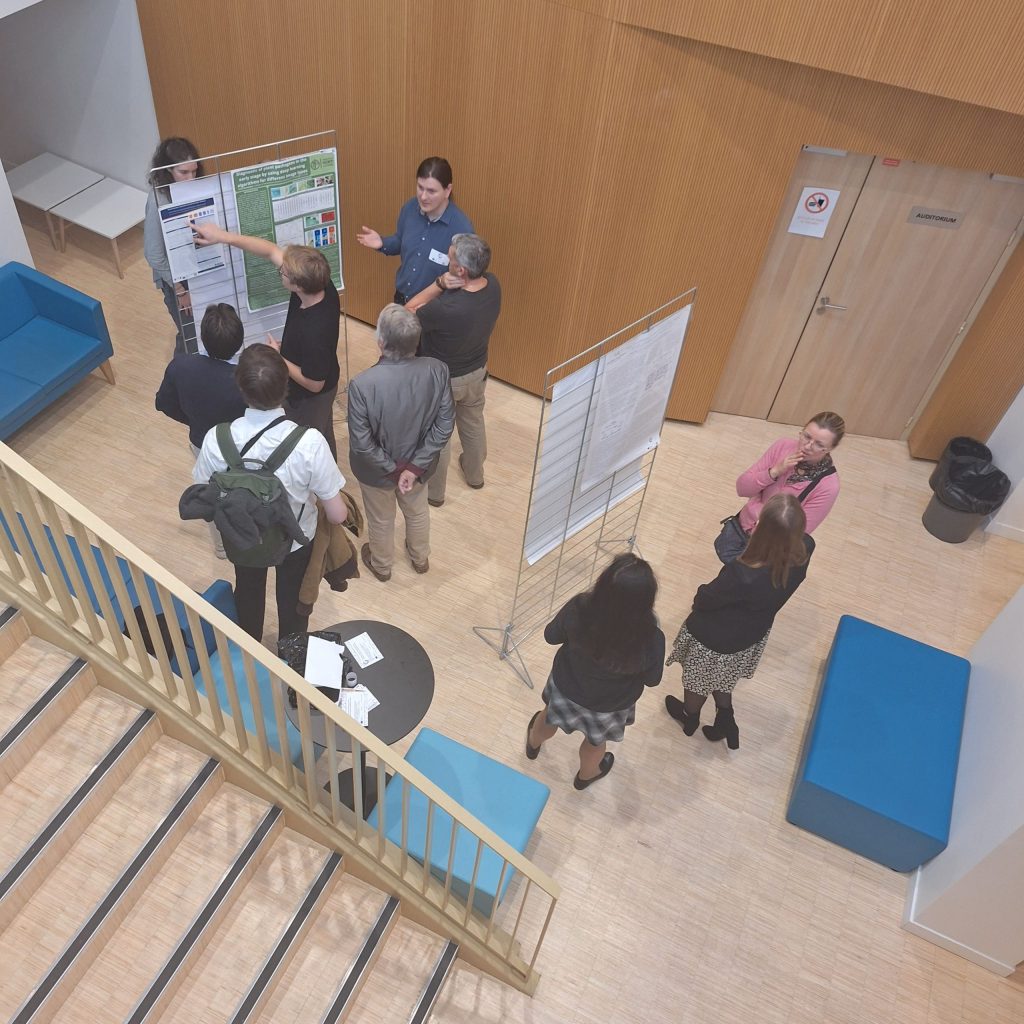
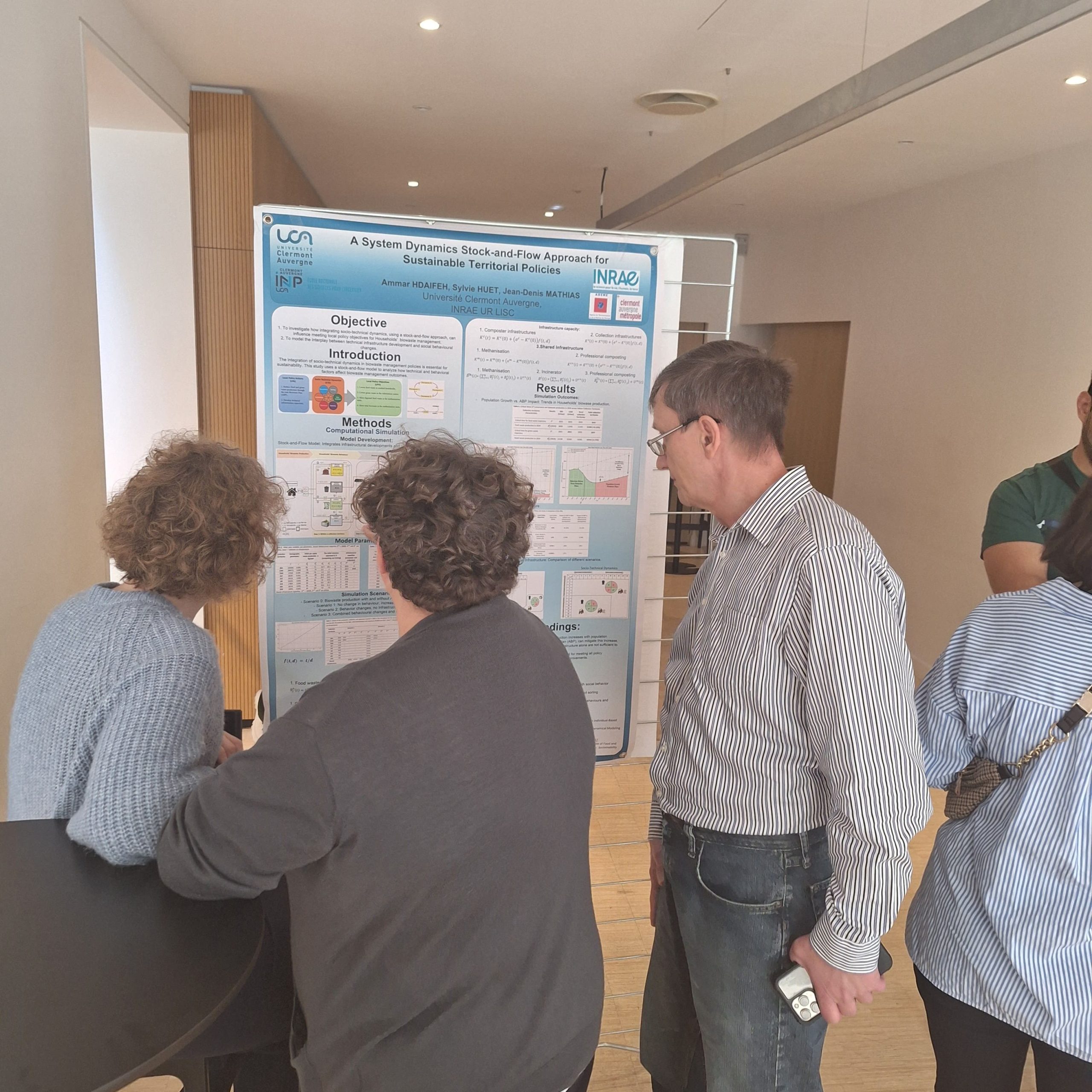
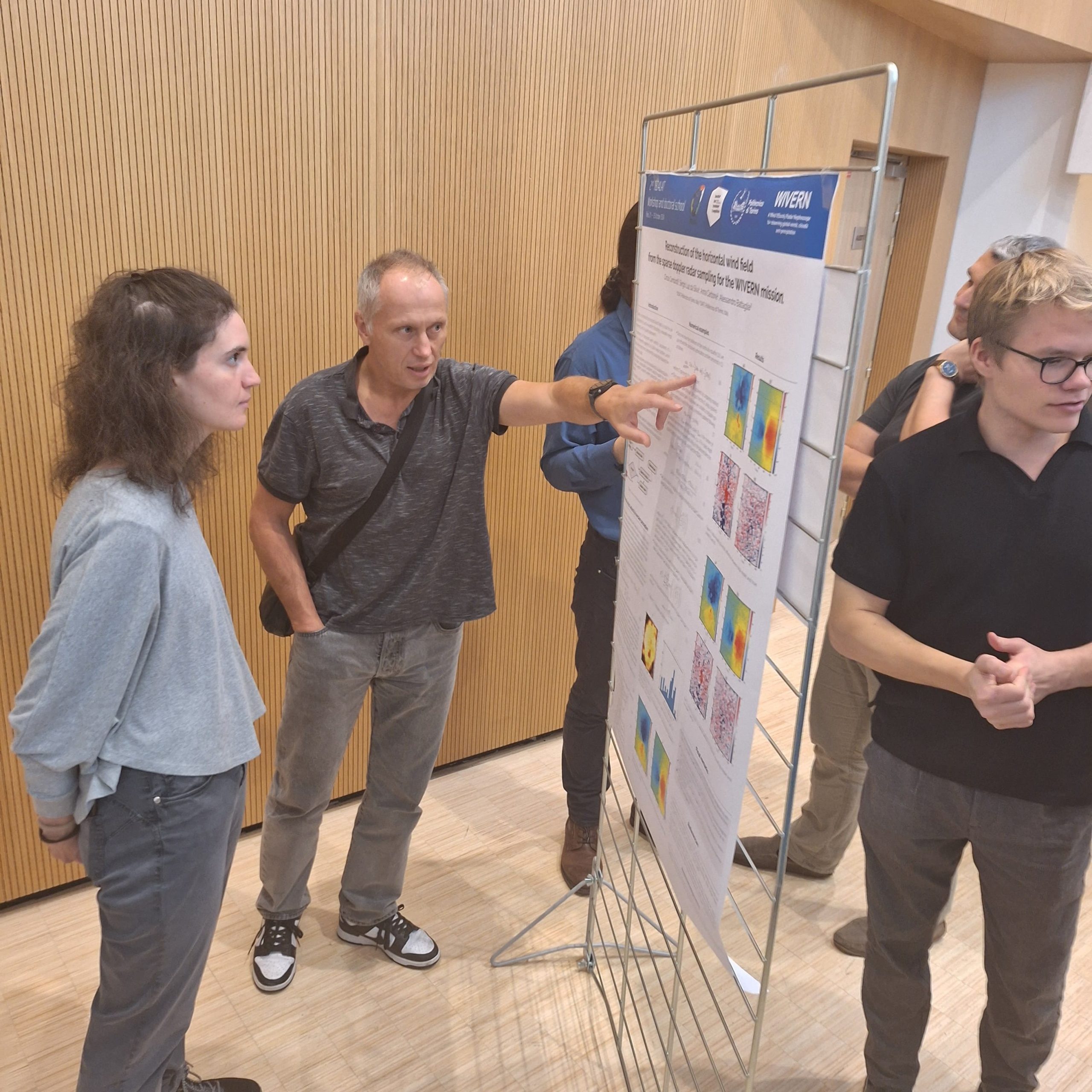
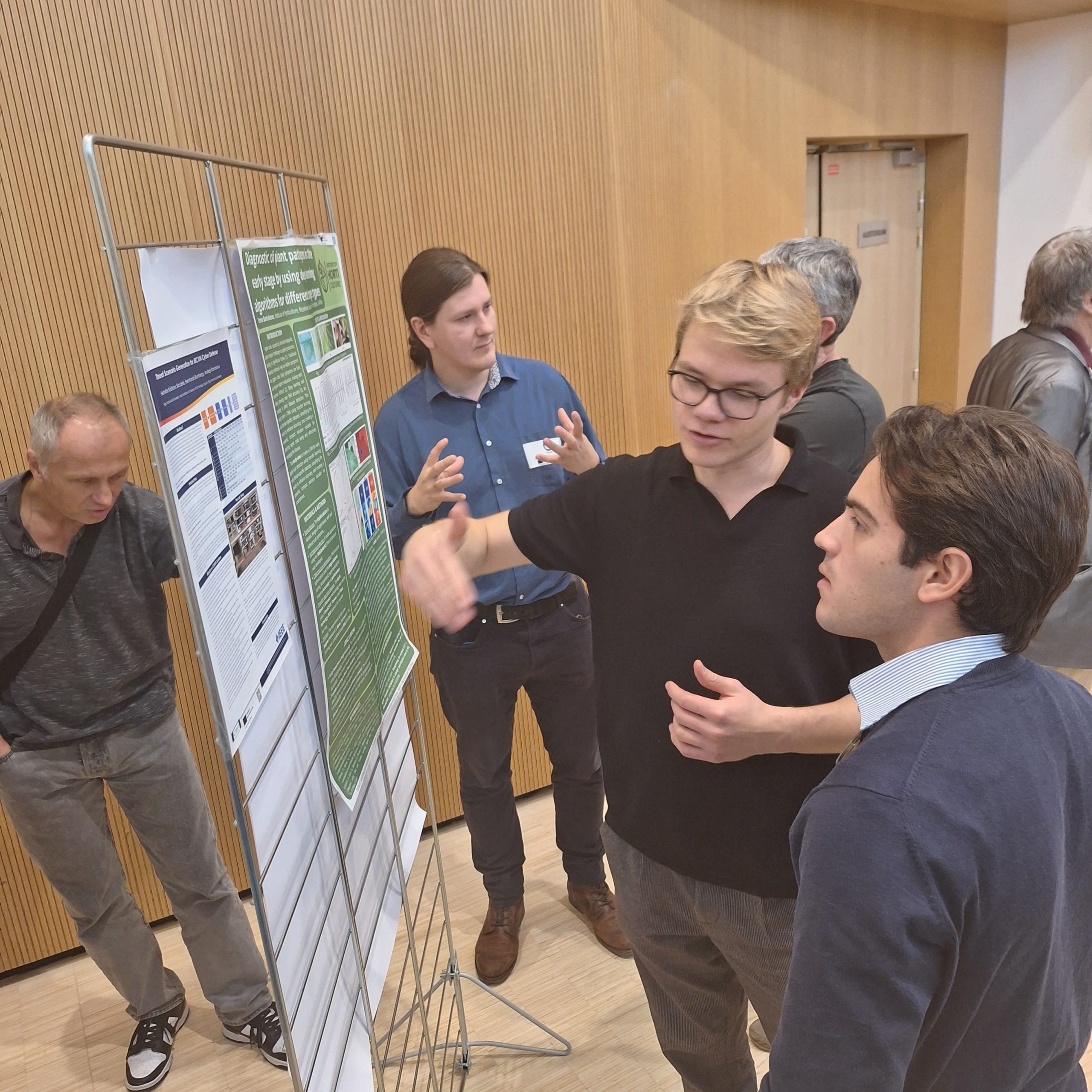
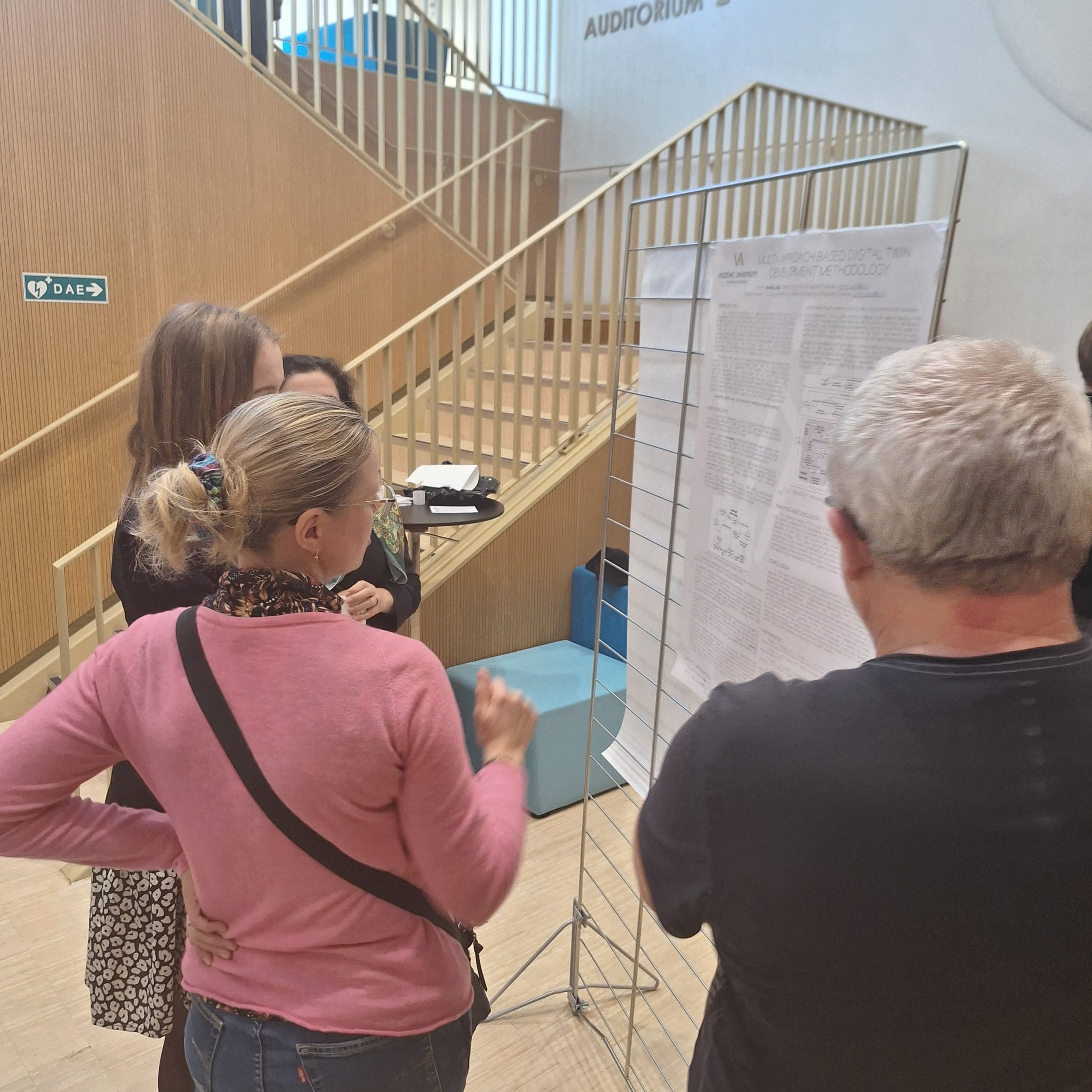
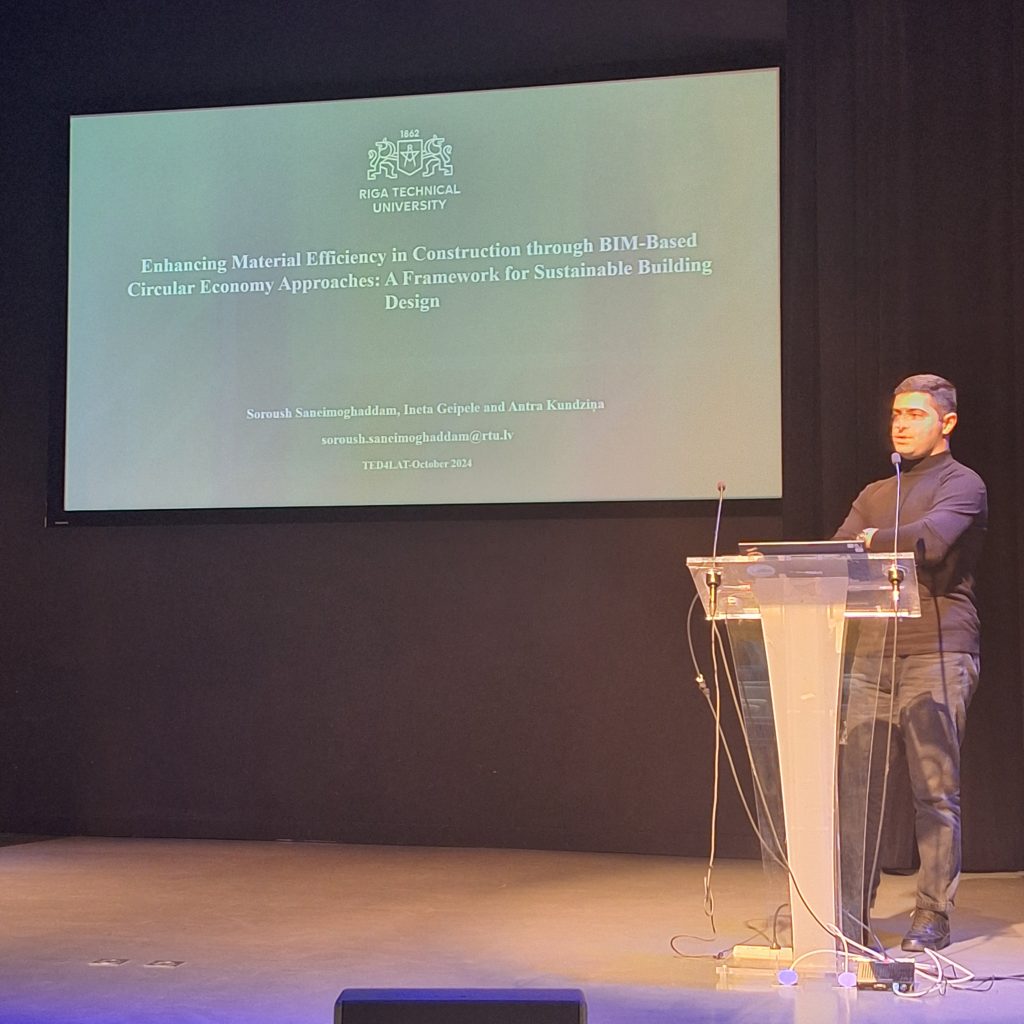
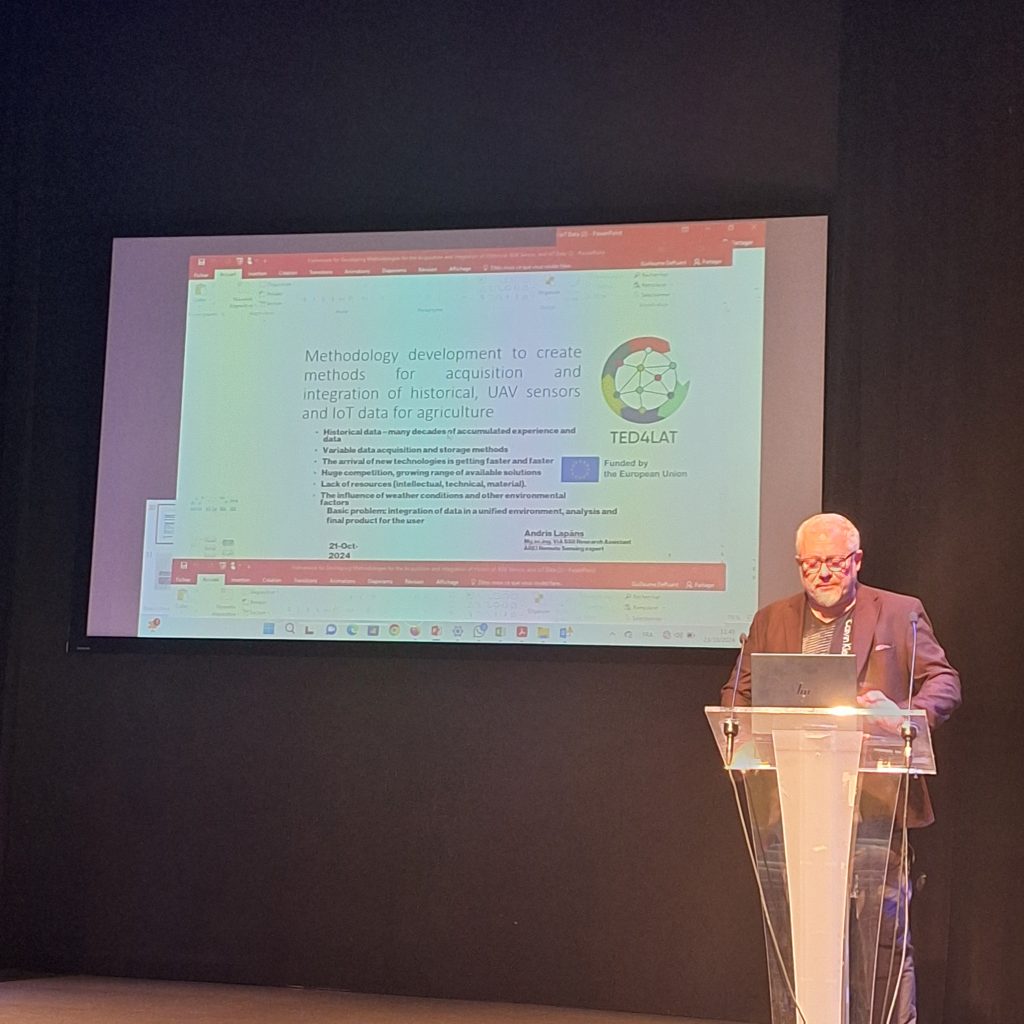
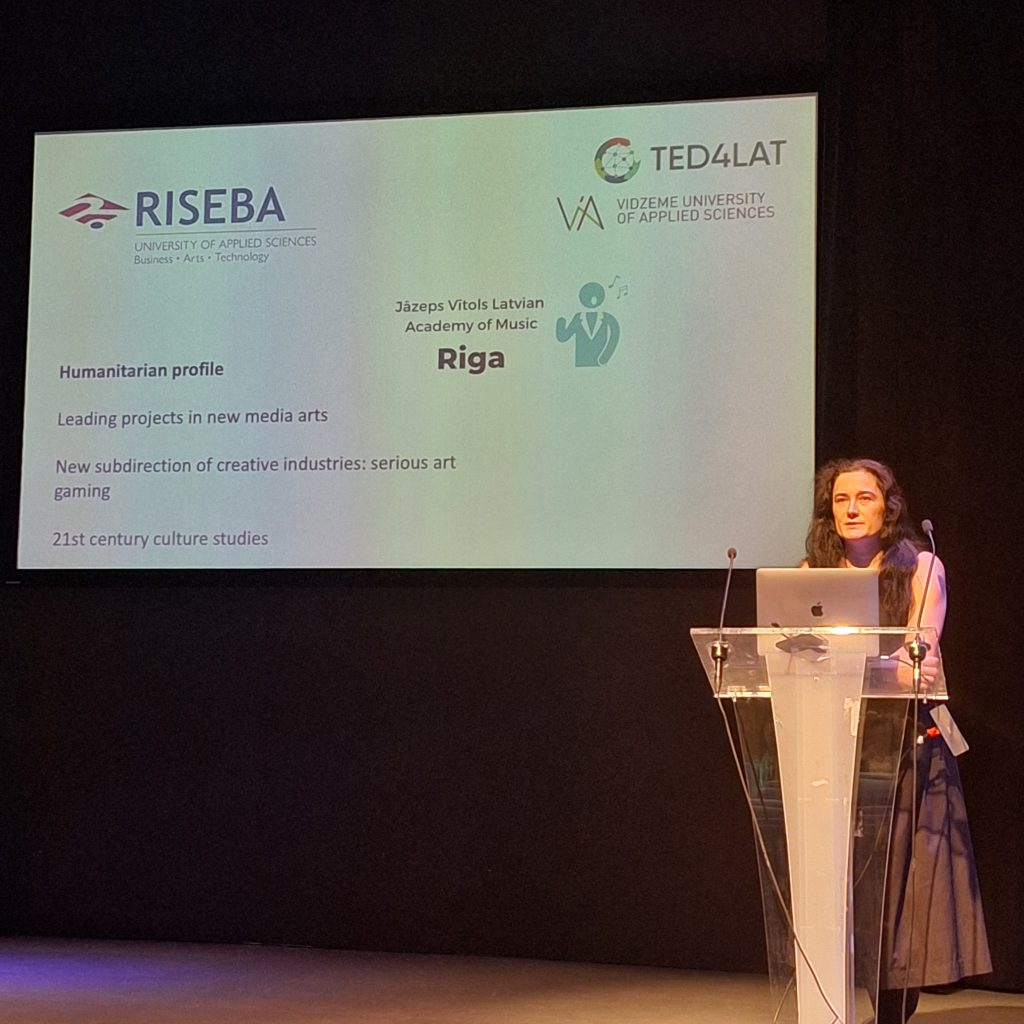
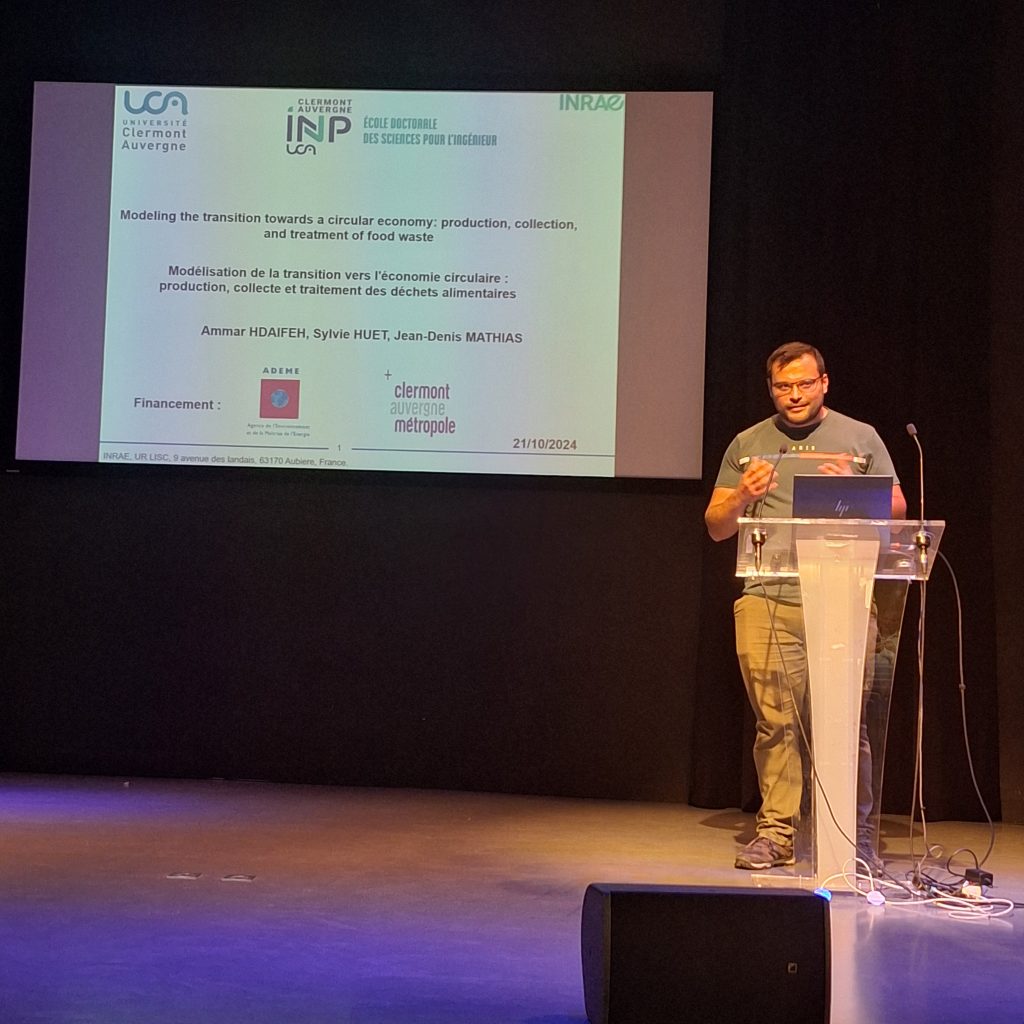
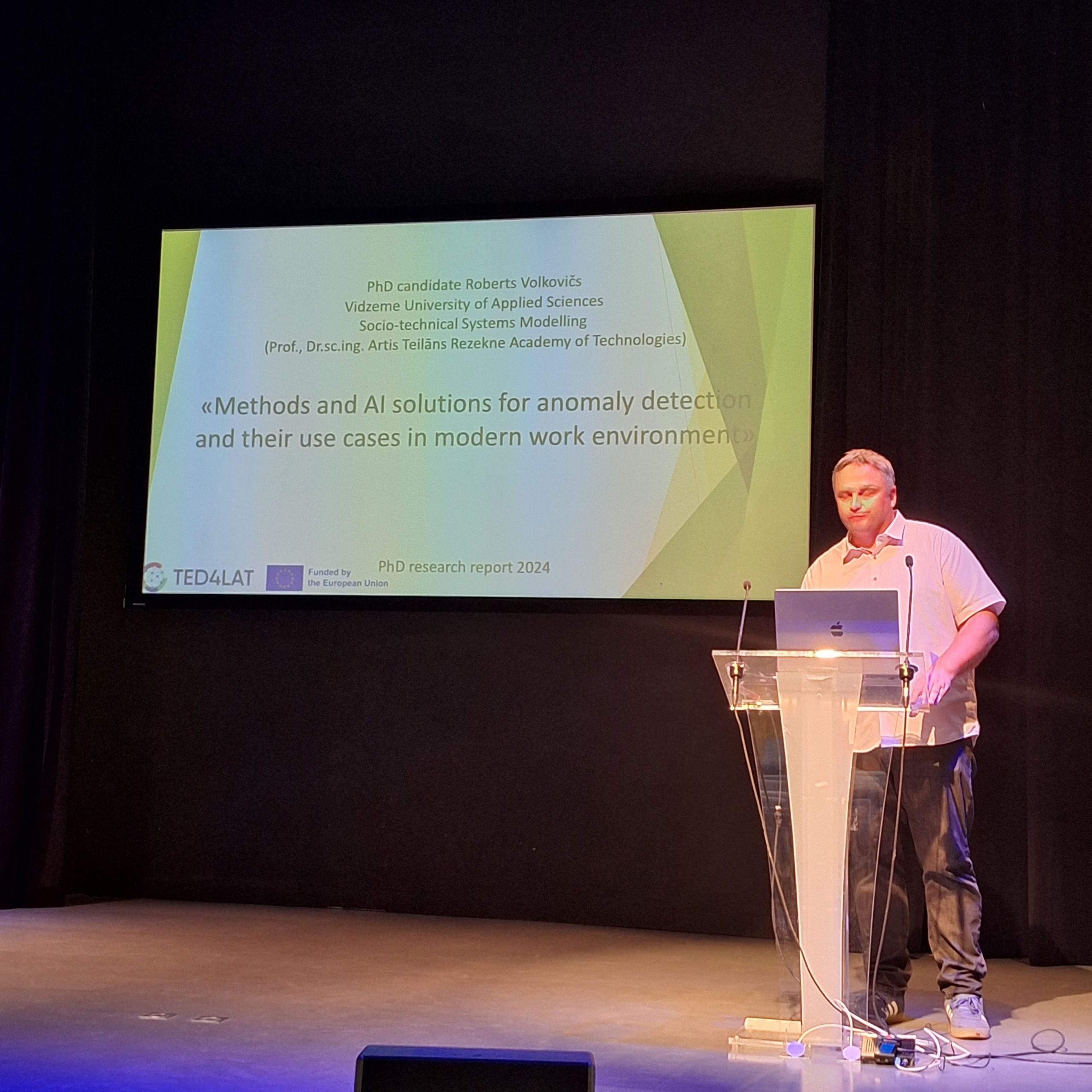
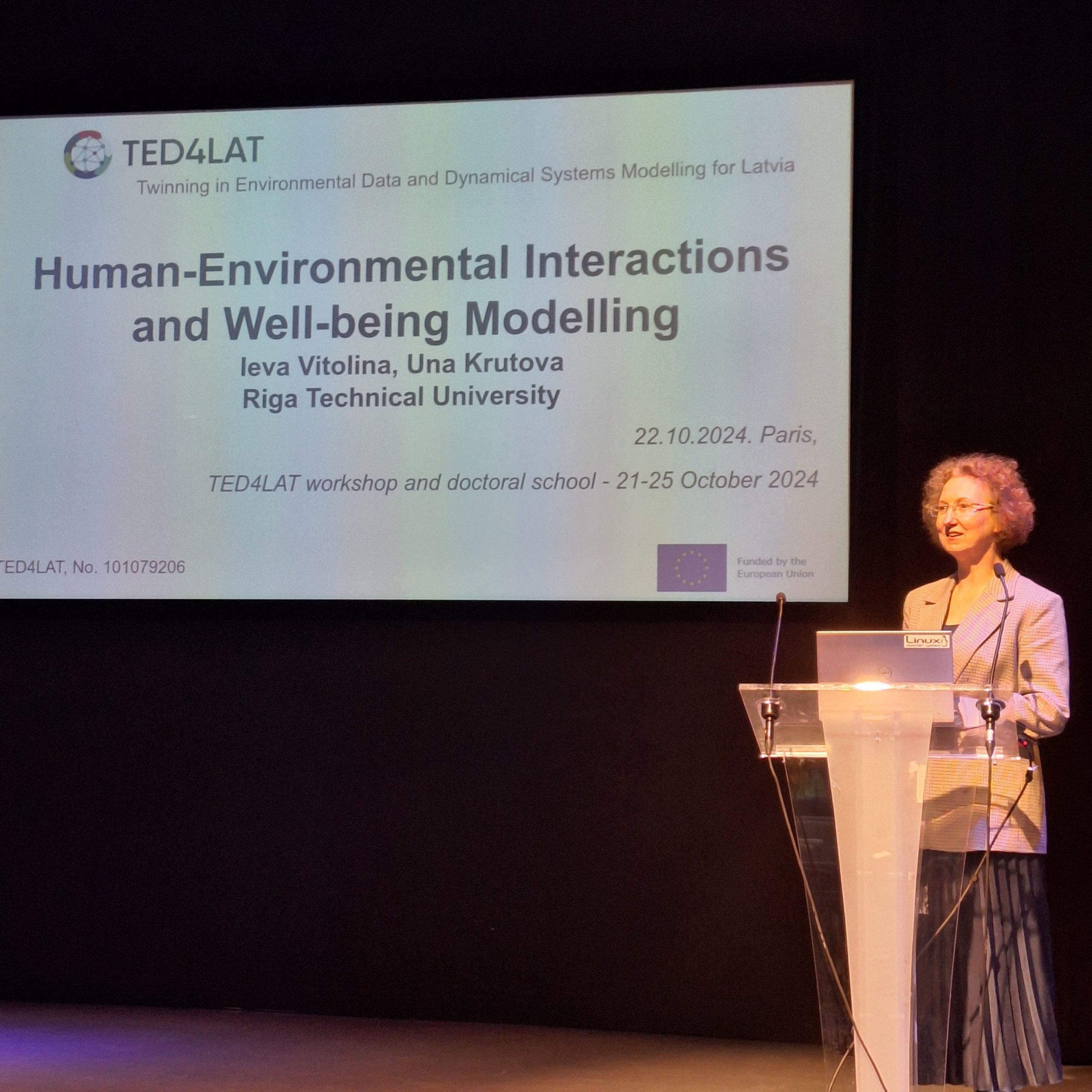
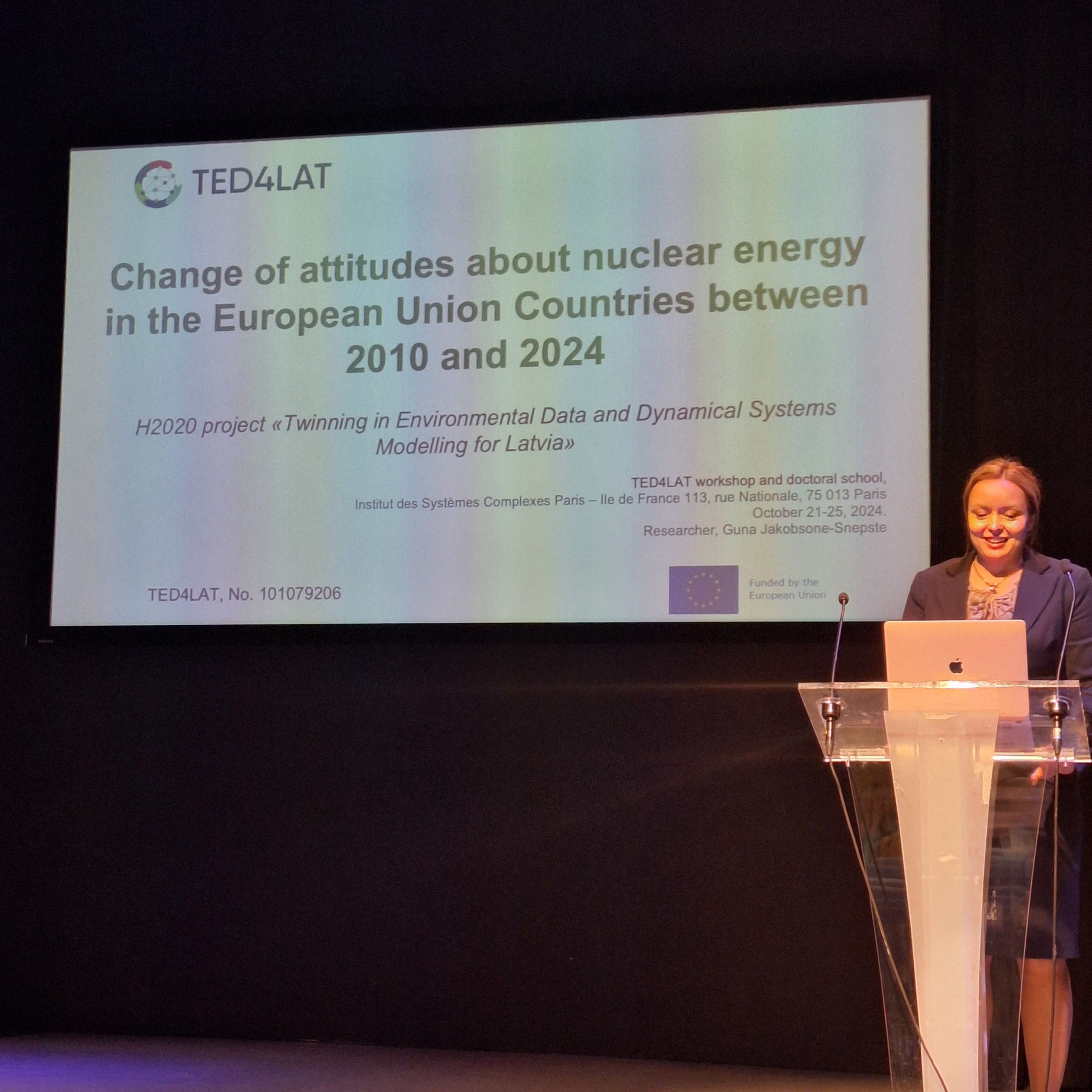
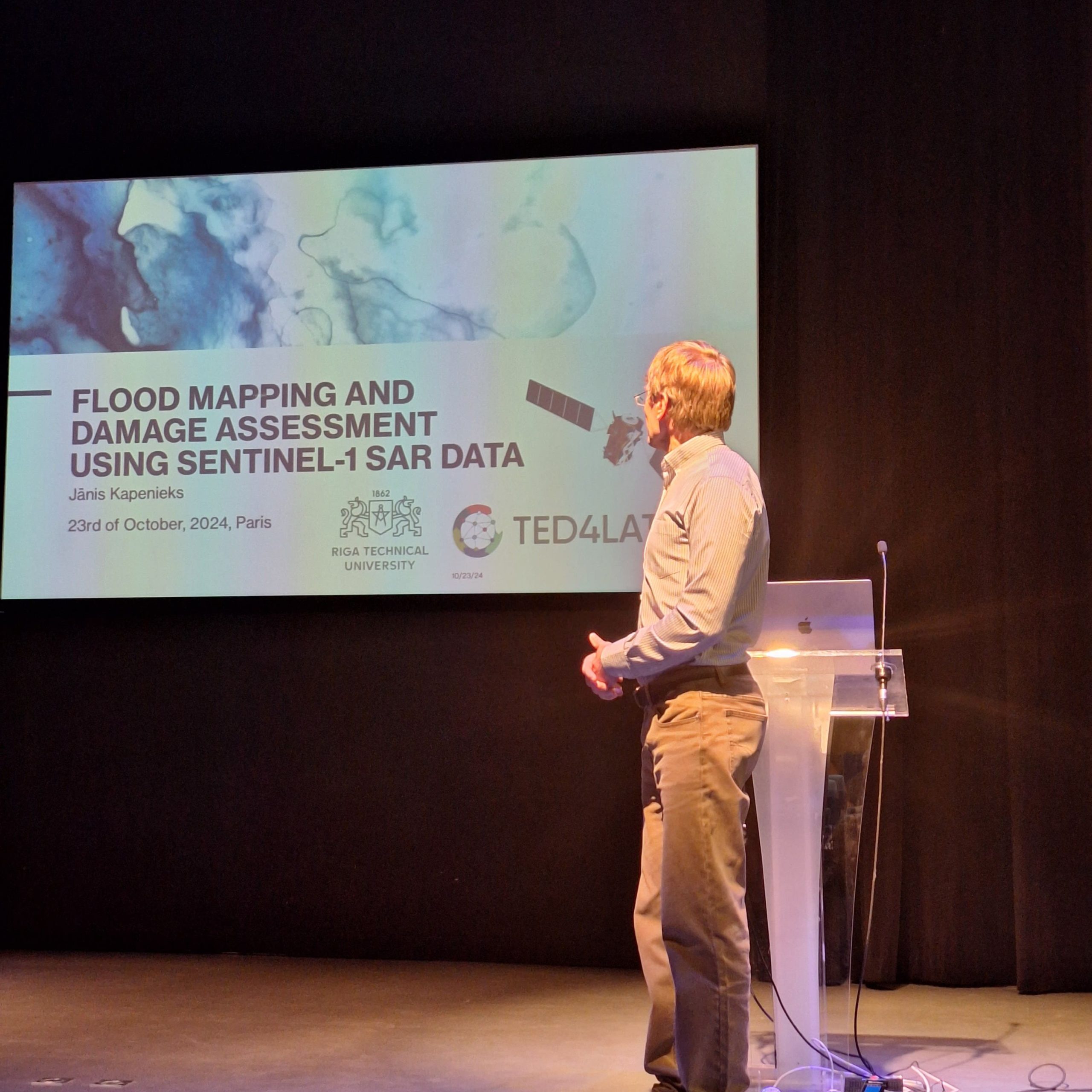
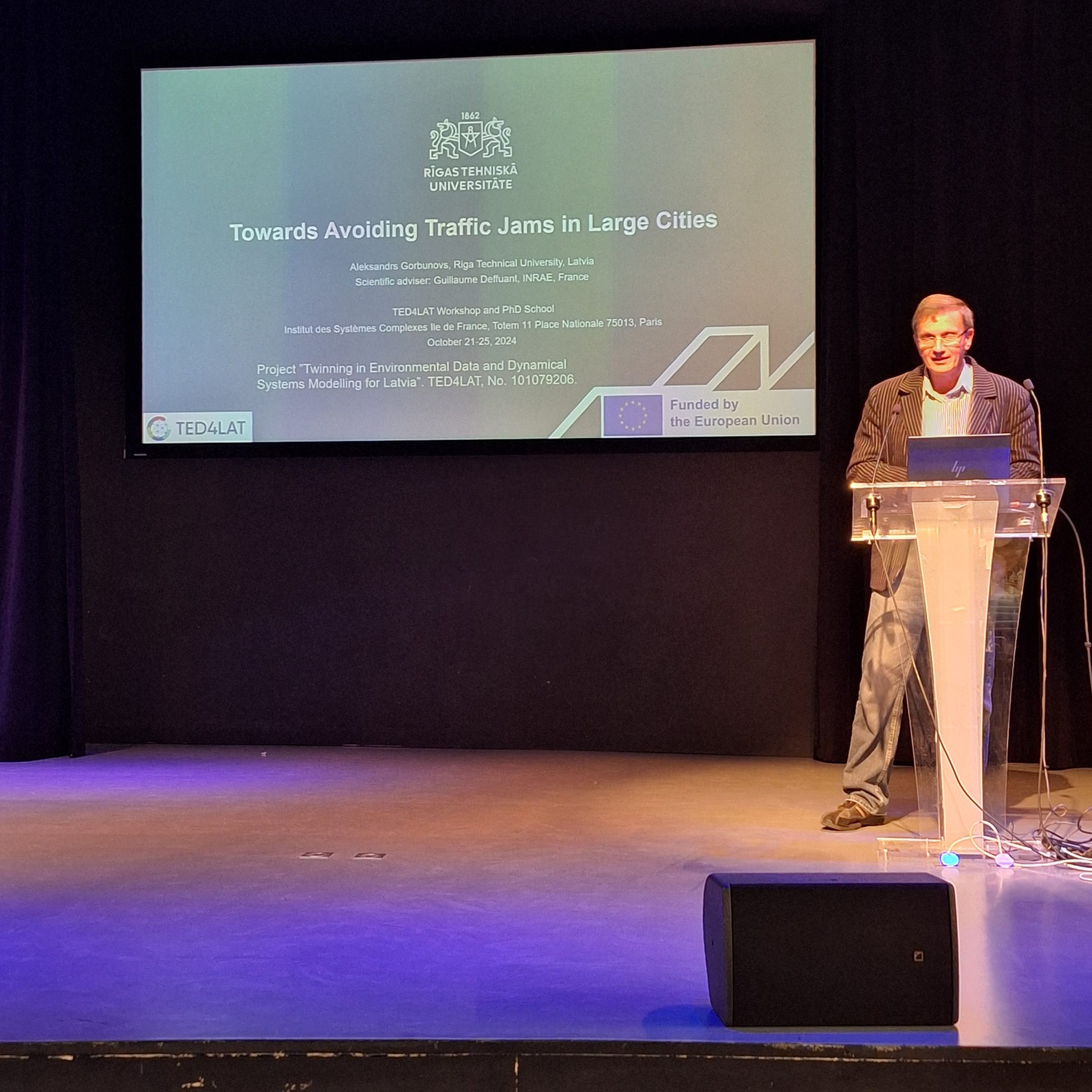
2024/10/31
This autumn is a time of gathering the fruits of hard work, and we are delighted to share the latest harvest from TED4Lat’s research team: a new open access paper titled “Digital Twins and E-Learning: Navigating Challenges and Opportunities”.
In this innovative study, our researchers examine how Digital Twins—virtual replicas of physical systems—are transforming E-Learning environments. As digital education continues to grow, digital twins offer exciting possibilities for creating more immersive, personalized learning experiences. However, the paper also addresses critical challenges such as technological complexity, data security, and ethical considerations.
This research provides valuable insights for educators, policymakers, and tech developers working to enhance the future of learning through cutting-edge technology.
You can access the full paper here.
Just as autumn symbolizes the culmination of effort, this paper represents the hard work and dedication of our team to contribute to the ongoing evolution of digital education. Stay tuned for more groundbreaking developments from TED4Lat!
2024/09/23
- 1
- 2

